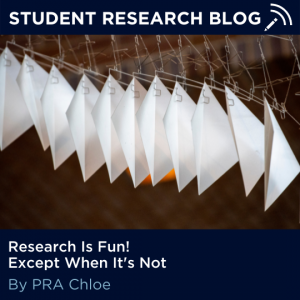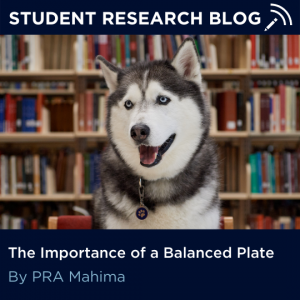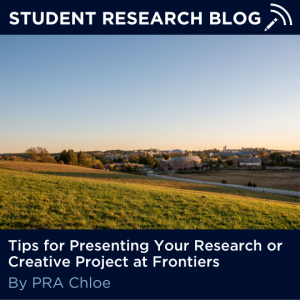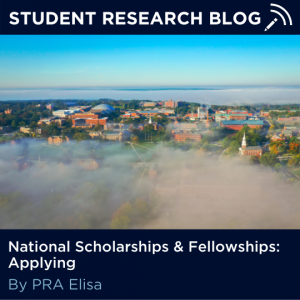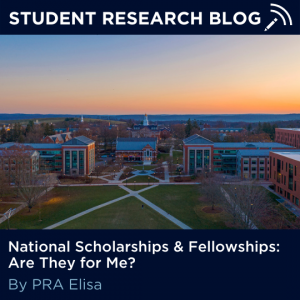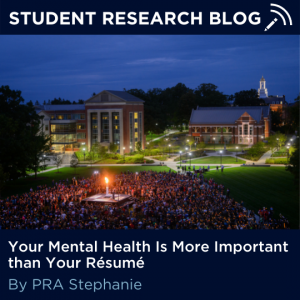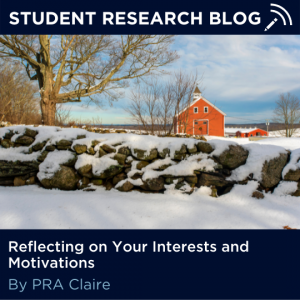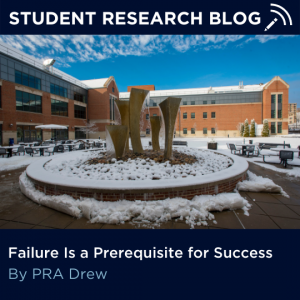By Kira Cuneo, Peer Research Ambassador
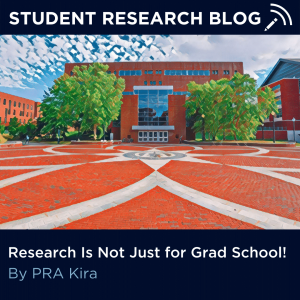 One common misconception when it comes to research is that it is only something that students who are interested in attending grad school are eligible to participate in. As someone who will not be going to grad school, I am here to tell you that that is not true.
One common misconception when it comes to research is that it is only something that students who are interested in attending grad school are eligible to participate in. As someone who will not be going to grad school, I am here to tell you that that is not true.
When I started to consider research as a freshman, I could honestly not tell you what I wanted to do with my life after college. I only knew two things: I wanted to explore my major outside of the classroom and I did not want to spend another summer working as a lifeguard at the lake in my hometown. Getting involved in research the summer between my freshman and sophomore year seemed like a perfect place to start. Although this did not go exactly as planned, (I mean it was 2020… did anything go as planned?) I began working on the Crumbling Foundations project in the fall of my sophomore year and it has been such a positive experience in my undergraduate career. Continue reading
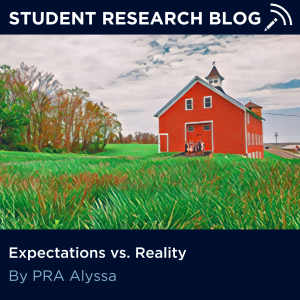 By Alyssa Daniels, Peer Research Ambassador
By Alyssa Daniels, Peer Research Ambassador